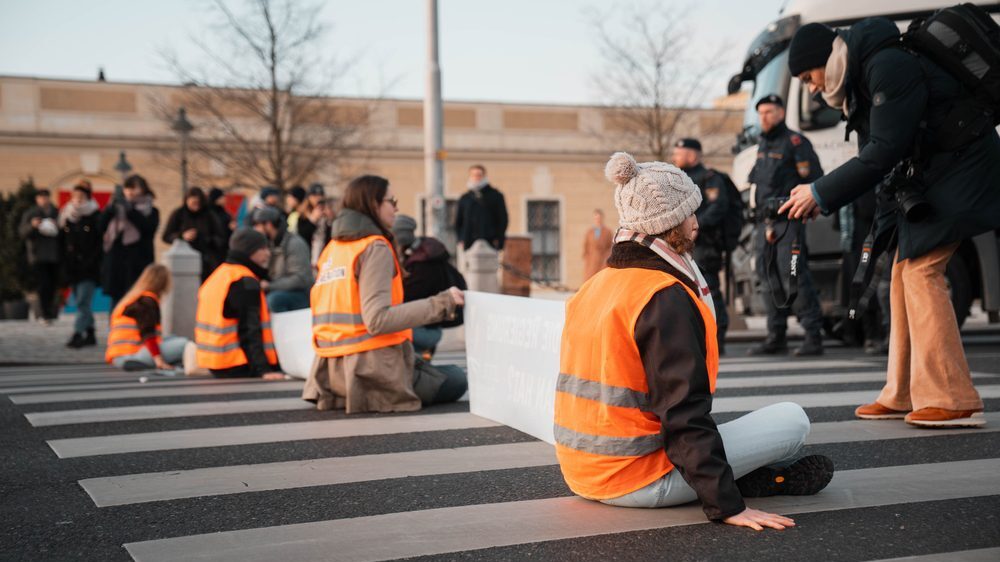
Photo: Andreas Stroh / Shutterstock.com
Vienna police have warned citizens held up in traffic queues caused by climate activists against clearing their path. Doing so, the officials said, could lead to criminal penalties. Members of the “Letzte Generation” (Last Generation) group were at the same time told that they could participate in yesterday’s May Day march.
The two declarations appear to send the message that climate activists are welcome to continue disrupting citizens, as they are doing across Europe. Berlin’s legal system late last month took the shape of a “revolving door” for demonstrators, who stopped employees from getting to their places of work, and even halted the movement of more than a dozen ambulances, just hours after being released scot-free from police custody. In London, a frustrated driver who took it upon himself to remove an activist from a blocked road was told by a police officer: “If you start pushing him, that is assault, so you can’t do that. If you do that, it is a crime.” A lorry driver then shouted at the officer: “Can you deal with them, can you get them out of the road?”
Vienna officers yesterday adopted a similar line against those stuck in queues caused by climate activists. While accepting that “experience has shown that this can massively impede private transport,” they wrote in a post on Twitter:
We would like to point out that private individuals who take action against the activists on their own may make themselves subject to criminal or administrative penalties.
Citizens, police added, should simply “keep calm and wait for us to arrive.”
Die Aktivist*innen der „Letzten Generation“ haben ab Dienstag, 02.Mai 2023, fortwährende spontane Kundgebungen angekündigt. Wie bereits in den vergangenen Monaten ist überw. zu Stoßzeiten im Frühverkehr mit Blockadeaktionen an neuralgischen Verkehrsknotenpunkten zu rechnen. (1/5)
— POLIZEI WIEN (@LPDWien) May 1, 2023
The following day, Exxpress reported that the Social Democratic Workers’ Party of Austria (SPÖ) had “let the Last Generation march with banners at the May march in Vienna,” despite their constant disruption. One reader commented:
The so-called workers’ party SPÖ lets those march along who, through their actions, prevent working people from coming to work. Bravo SPÖ, that just shows how indifferent this party is to these people who have to go to work.
The ongoing dispute raises difficult questions over the tension between the right of individuals to protest and the level of acceptable disruption for those trying to go about their lives—and, in countless cases, for emergency services working to save lives. Officials, writes Ellen Kryger Fantini, managing editor of The European Conservative, choose to avoid giving a definite answer not because the law is unclear but because they lack the will:
What the police lack is not clarity on the existing laws, but the political will to enforce them. Certainly, given the overzealous response to silent prayer near abortion centres, the police know how to interpret laws broadly to effect the result they seek.
